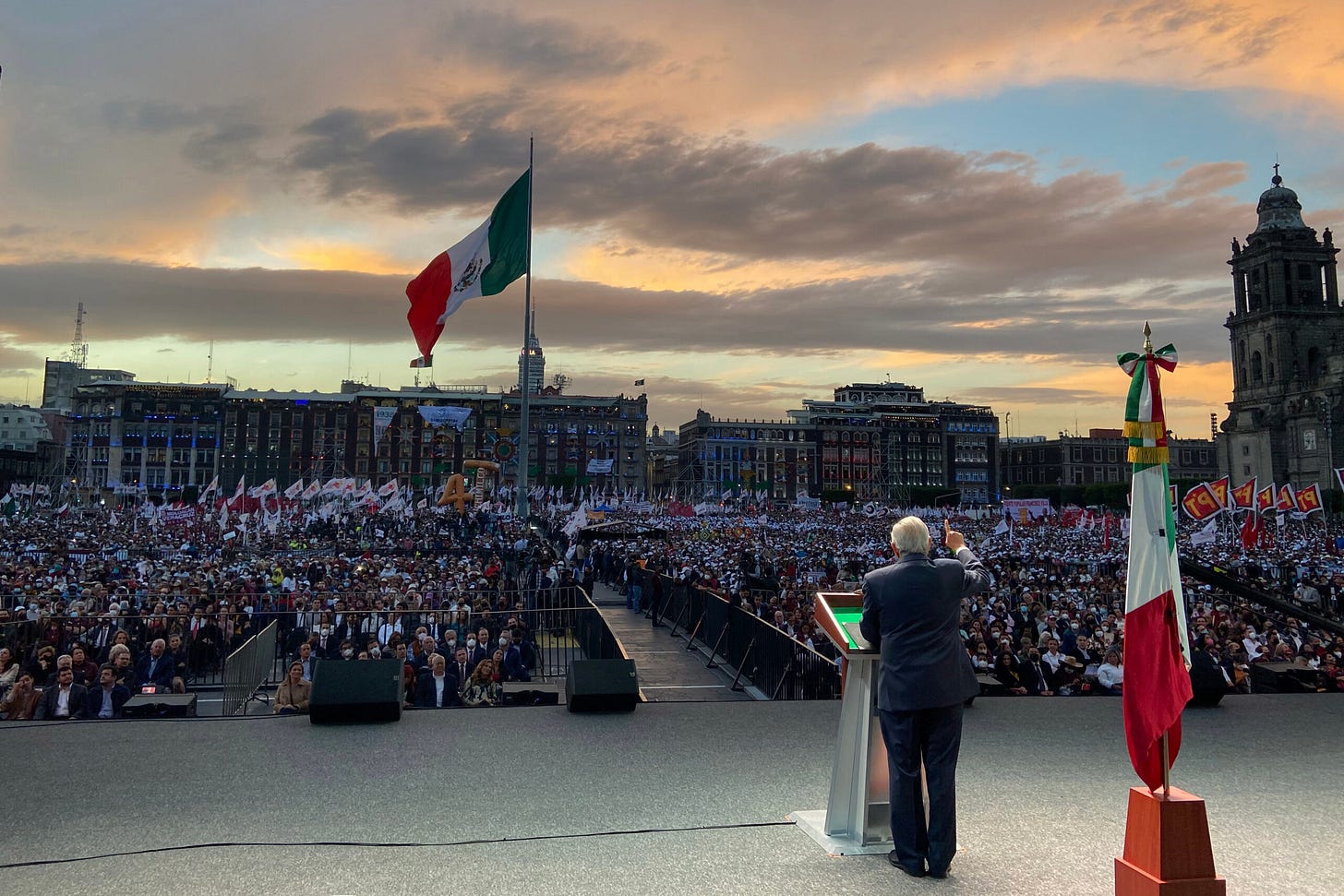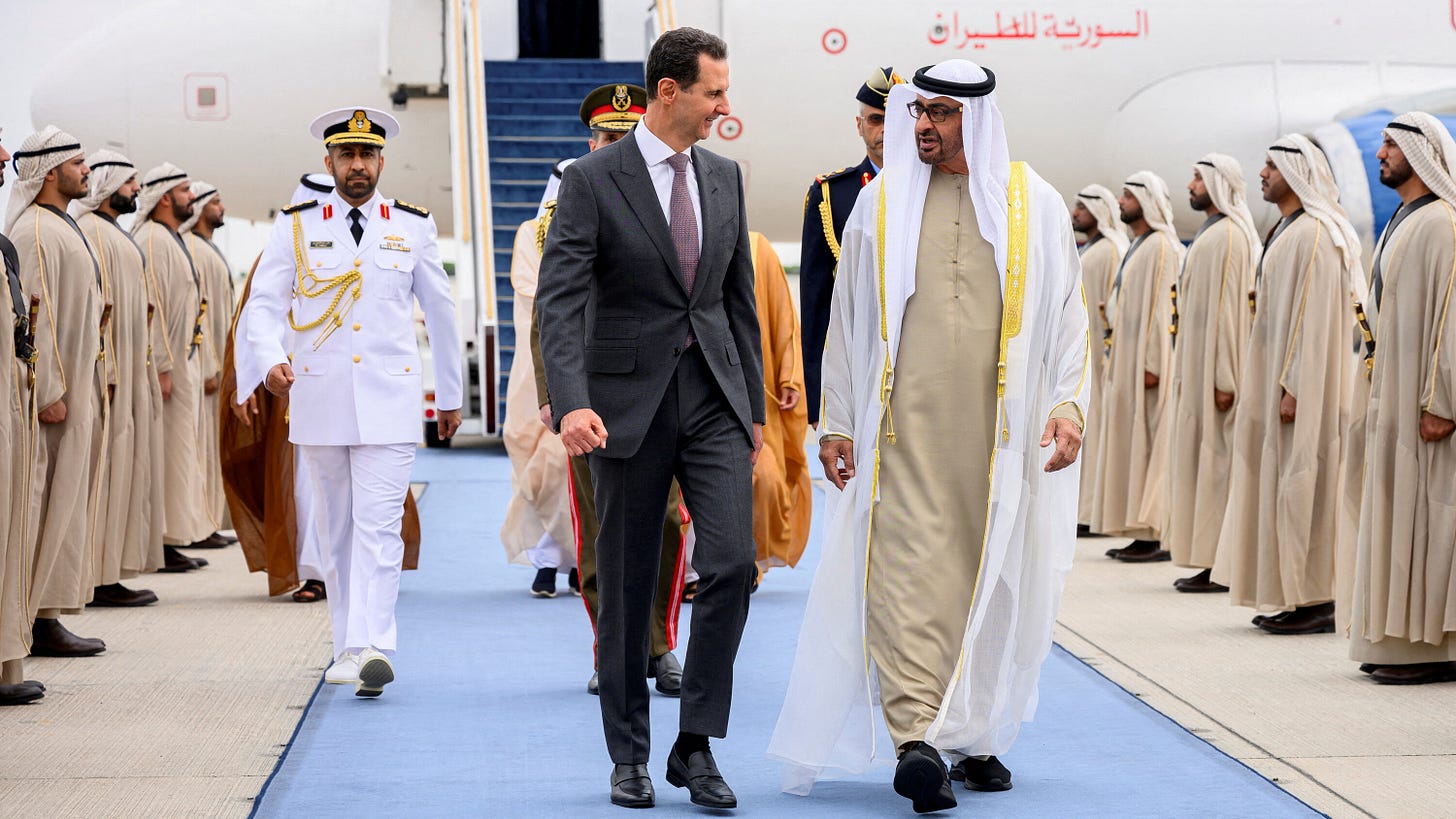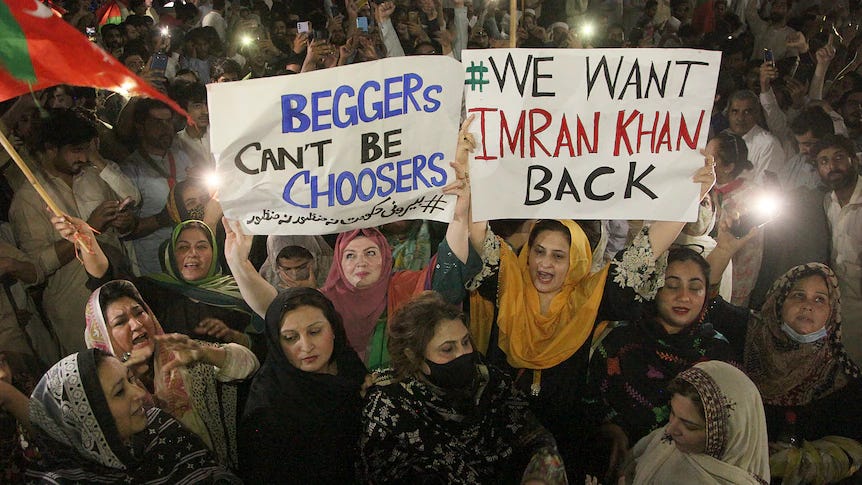Peace in the Middle East?
Syrian president Bashar al-Assad has made a visit to the UAE, the second in the last year. This comes soon after a Chinese-brokered deal reopened relations between Iran and Saudi Arabia. Just this Sunday, the Saudi head of state invited his Iranian counterpart to Riyadh.
Assad’s government had been at odds with the gulf monarchies as they provided support for different rebel groups in the war. These had even replaced its representation at the Arab league with opposition forces claiming to be the legitimate government. Now, it seems they are mending bridges.
12 years after civil war broke out, fighting has mostly stalled yet different factions control significant territory to the North. Turkish-backed rebels remain in cities such as Idlib. In the northeast, the Kurdish breakout state controls the Mesopotamian region, with almost all oil fields and fertile land, with aid from US troops. Crucially, US military personnel occupies strategic positions such as petroleum extraction facilities. According to local sources, fuel is smuggled through Lebanon and the Mediterranean coast.
Read more about the Saudi-Iranian agreement here.
Protesters in Pakistan prevent Imran Khan’s alleged arrest
Thousands of supporters of Imran Khan clashed with authorities in Lahore, Pakistan in order to allegedly prevent the former prime minister’s arrest. The former PM was ousted following a no-confidence vote by opposition parties in the National Assembly.
Khan faces charges under anti-terror laws after he accused the police and judiciary of detaining and torturing a close aide. Since being ousted, the former prime minister has continuously rallied opposition against the current administration and demanding new elections be held. He has also insisted that his removal was part of a US led conspiracy over his friendly foreign policy approach towards China and Russia. As Pakistan continues to face major economic challenges, the ongoing crisis will likely continue.
Mexican president rallies supporters against US

This Saturday, President Andrés Manuel López Obrador (commonly known as AMLO) spoke before a packed audience at El Zócalo. The occasion marked the 85th anniversary of the oil industry’s nationalisation. Just a few weeks ago, his opponents had also filled the square to protest against his reforms of the electoral commission.
In the president’s speech, the key contentious issues were related to Mexico’s sovereignty and tensions with the US. Republican representatives have been calling on the US military to enter Mexico in order to fight drug cartels. Just this Sunday, a bipartisan delegation met with AMLO to discuss the so-called “war on drugs”.
The Mexican president also stressed plans for energy self-sufficiency. Another point of tension with the US has been the lithium sector, where Mexico intends to retain state control while allowing foreign firms to invest. Read more on AMLO and lithium on our site.
Exodus in Ecuador again
Ecuador has become the main country of origin for migrants crossing the Darien Gap. Covered by dense jungle, this region separates Colombia from Panama. The terrain is so difficult there are no asphalted roads crossing it. The route has been used by migrants from different countries; the largest groups seem to come from Haiti, China, Venezuela, and Ecuador.
With visa-free access, Ecuador has been one of the countries from where migrants would start their trek to the US. Migrants can fly there and make their way across Colombia and Central America into Mexico’s northern border, much of it by foot.
In the 1990s and early 2000s, Ecuador endured harsh financial and economic conditions, with hyperinflation, bank runs and eventually official dollarisation. Emigration became widespread; 1.5 million, or 11% of Ecuadorians live abroad, mostly in the US and Spain. In the years of President Rafael Correa (2007-2017) and the “commodity boom” the economy grew and many made their way back. However, in recent years the situation has been worsening. Violent crime is also on the rise, as drug cartels are increasingly using routes through Ecuador, especially via the port of Guayaquil.
Bonds: Ukraine to fight Russia in British courts
Ukraine has just secured a significant victory in its long legal battle against Russia concerning the $3bn "Yanukovych" bond in Britain’s Supreme Court. The court allowed for the case to go to trial, and Ukraine will defend it on the grounds of duress.
The bond in question was issued shortly before the 2014 protests that overthrew then-president Viktor Yanukovych. The notes were issued in 2013 and matured in 2015. The case has been running since 2016, and has escalated until it reached Britain’s Supreme Court in 2019.
Given Downing Street’s strong support for Ukraine, it is likely that the judges will favour the debtors. However, this could set a controversial precedent whereby governments can challenge odious debt. Despite his later unpopularity, Yanukovych had been a democratically-elected leader.
Suella Braverman travels to Rwanda
The Home Secretary of the United Kingdom Suella Braverman makes an official tour to Rwanda in an attempt to follow through with the UK government’s controversial plan to deport migrants in the UK.
The proposal labelled the Rwanda Asylum Plan was drawn up under Boris Johnson’s administration as part of the conservative party’s anti-migrant crackdown. However, the plan has faced criticism from both opposition parties as well as some members of the conservatives who questioned its efficacy. Furthermore, the policy has also faced criticism from the United Nations High Commissioner for Refugees describing it as unlawful, prejudiced and stating that it would violate international laws relating to asylum seekers and refugees.









